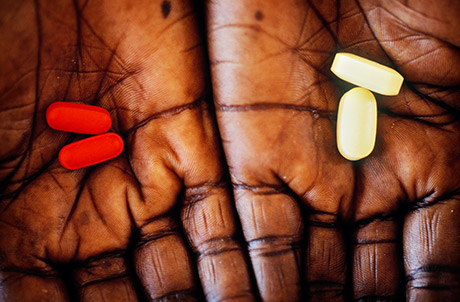Tackling Tuberculosis
22/3/13
TB is one of the most serious infectious diseases in the world, second only to HIV. In 2011, there were 1.4 million deaths from TB, and 8.7million new cases of the disease.
Tuberculosis (TB) is one of the most serious infectious diseases in the world, second only to HIV. Despite this, it has been nearly 50 years since there has been a new class of drug to treat TB. In 2011, there were 1.4 million deaths from TB, and 8.7million new cases of the disease.
It has been nearly 50 years since there has been a new class of drug to treat TB.
Although huge numbers are still dying of TB, since 1991 the number of deaths has reduced by 41%. But TB still poses a major threat to millions of people around the world, particularly to those in less developed countries, where many people live in cramped conditions, making it easy to pass on this contagious, airborne disease. HIV and AIDS also weakens people’s immune systems which makes it easier for them to contract TB, causing an increase in the rate of TB in developing countries.
While TB has been around for centuries, new strains of TB have emerged which are either partially or extremely resistant to the antibiotics used to treat it. These drug resistant forms are particularly difficult to cure, and treatment can take over 2 years and may require 12,000 pills and up to 200 injections. As well as the long and difficult treatment process, there is also a stark absence of drugs suitable for children suffering from TB. All of these issues highlight the need for new drugs to successfully combat TB.
Treatment can take over 2 years and may require 12,000 pills and up to 200 injections.
Irish Aid is committed to support efforts to tackle TB, which is one of the 10 most common causes of illness and death in children. As part of our approach, we support international organisations such as the TB Alliance, The Global Fund to fight AIDS, TB and Malaria and the GAVI Alliance. These organisations provide assistance for countries trying to stop the spread of Tuberculosis through vaccinations programmes, treatment clinics and most importantly, research into new and more effective forms of medication.
We also work at international level to ensure that money allocated to TB through the Global Fund is well spent and properly accounted for. We do this through our membership of the Point Seven constituency group of the Global Fund to fight Aids, TB and Malaria, which we’ve chaired since 2011.

